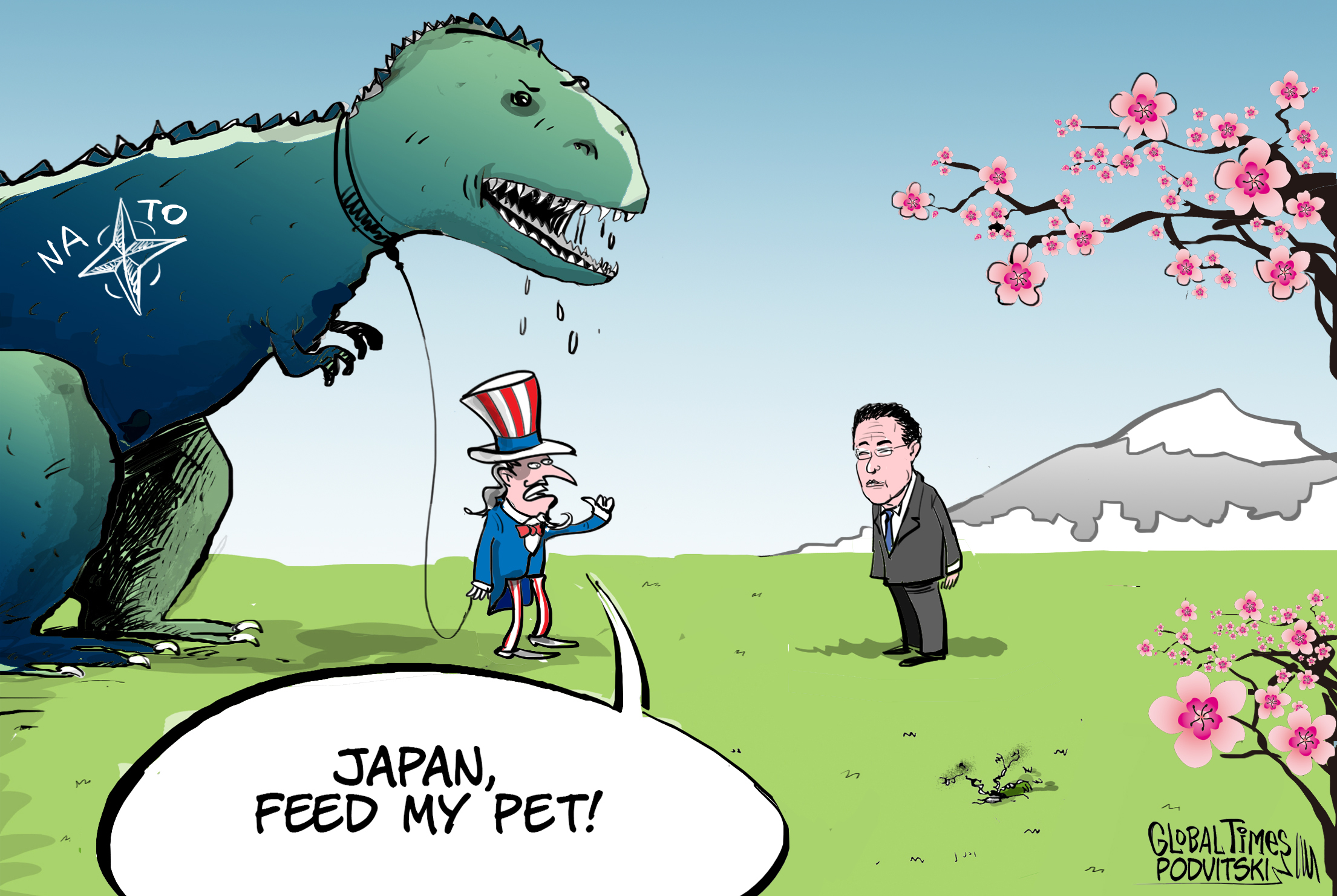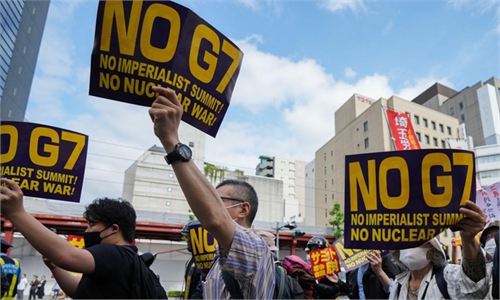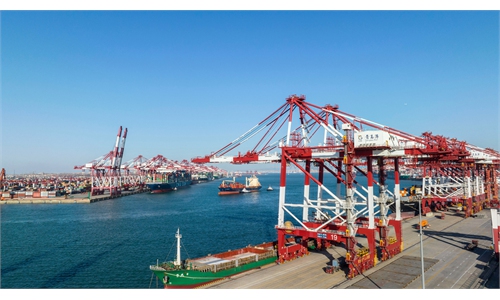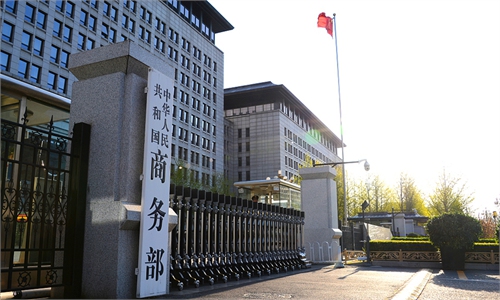Provocative defense paper reveals Japan’s dangerous intention to seek constitutional revision, observers warn

Japan, the first feeder of NATO in Asia. Cartoon: Vitaly Podvitski
Japan continues to hype "China threat" theory in its annual defense white paper after the G7 summit that witnessed intensive activities to smear and attack China. This, according to Chinese observers, further revealed Japan's conspiracy to collaborate and hijack other countries and regions to confront China.
Observers pointed out that Japan's real intention is to expand its own military and realize constitutional revision.
China may move up its plan to build a "world-class military" by the mid-21st century as Beijing is building up and modernizing its armed forces, The Japan Times reported Tuesday citing a draft of Japanese government's latest white paper on defense.
The draft said China may possess 1,500 nuclear warheads by 2035. It also expressed grave concerns regarding increasing Russian and Chinese military activities in waters around the country, claiming they seem "to clearly intend a show of force" to Japan.
As the holder of the rotating presidency of the G7 this year, Japan has been collaborating with relevant countries to smear and attack China during a series of activities and in the joint communiqué of the G7 summit which was held from May 19 to 21. Releasing the draft closely after all of this only further exposes Japan's intention to hijack other countries to identify China as an "enemy" by constantly hyping China-related issues and the so-called China threat, Song Zhongping, a Chinese military expert and TV commentator, told the Global Times on Wednesday.
Song noted it is necessary for China to develop its military forces considering the challenges the US and Japan pose on China's sovereignty, security and development interests, especially the serious threats of the revival of militarism in Japan.
While highlighting China's rapid moves to building up its military capabilities including missiles and nuclear arms, the draft calls for counterstrike capabilities of Japan against missile launch bases to drastically step up its defense, a policy that was already included in Japan's national security strategies updated late last year. It notes that the Japanese government will increase defense spending to two percent of GDP in fiscal 2027, including related costs, calling for spending an unprecedented 43 trillion yen ($310 billion), in the next five years, according to NHK.
The paper is set to be formally reported at a Cabinet meeting and released in July, Japanese media reported.
These provocative activities against China are all subconsequent operations of the Japanese government in order to carry out its new national security strategy, experts pointed out.
Japan is on a dangerous path under the guidance of the new strategy, Liu Jiangyong, vice dean of the Institute of Modern International Relations at Tsinghua University, told the Global Times.
According to Liu, Japan is likely seeking to break military restrictions in two ways: abroad, it tries to increase military spending and promote military cooperation with other US allies by hyping "China threat." Japan is apparently trying to enhance ties with NATO and tying the latter to its chariot toward China on the Taiwan question.
At home, the ruling Liberal Democratic Party will probably collaborate some out-parties to promote constitutional revisions in the following 2-3 years, Liu said, warning that Japan probably would make use of Korean Peninsula issue, the Taiwan question and disputes over the Diaoyu Islands in order to stir up the Japanese public to support constitutional revisions, Liu warned.



